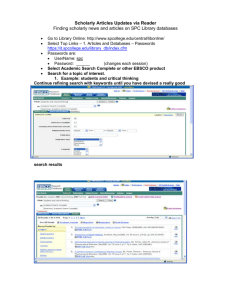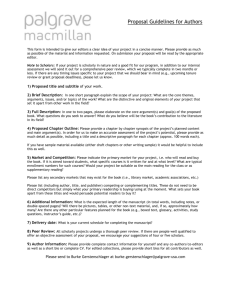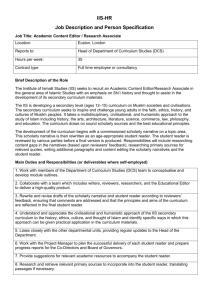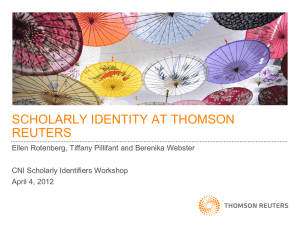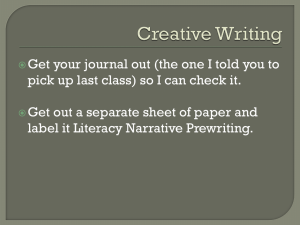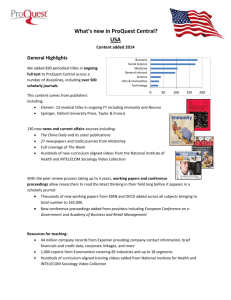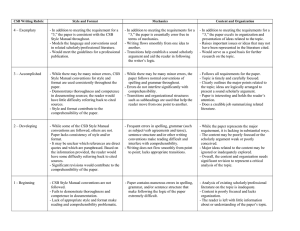LRS Writing Guide - Lisbon Regional School
advertisement
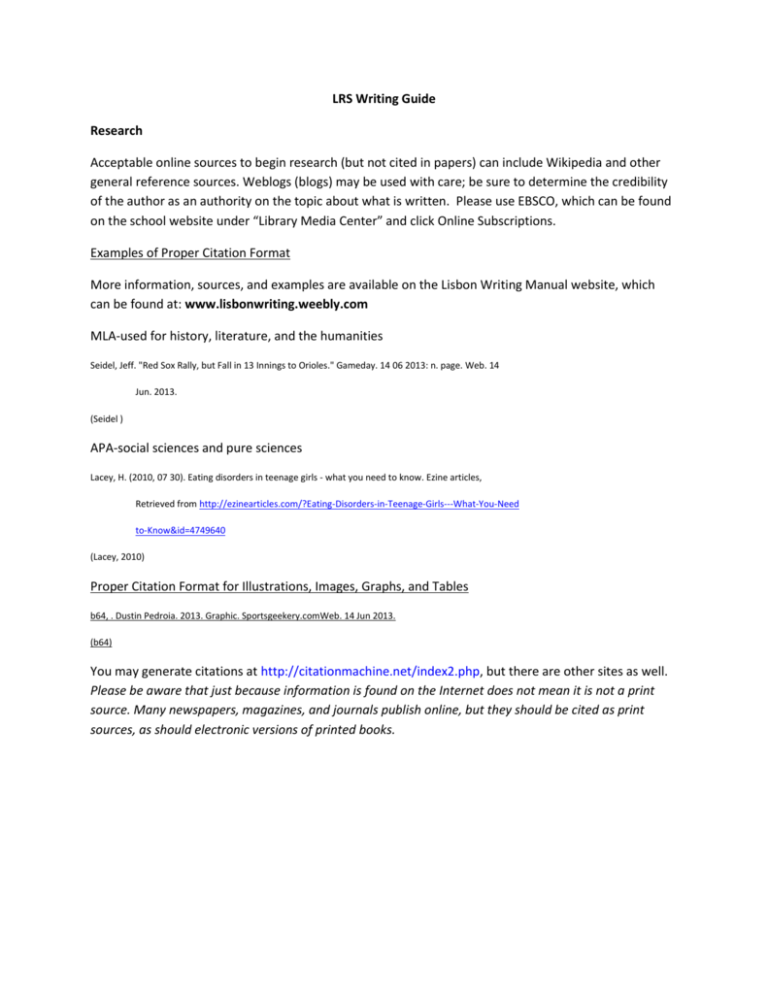
LRS Writing Guide Research Acceptable online sources to begin research (but not cited in papers) can include Wikipedia and other general reference sources. Weblogs (blogs) may be used with care; be sure to determine the credibility of the author as an authority on the topic about what is written. Please use EBSCO, which can be found on the school website under “Library Media Center” and click Online Subscriptions. Examples of Proper Citation Format More information, sources, and examples are available on the Lisbon Writing Manual website, which can be found at: www.lisbonwriting.weebly.com MLA-used for history, literature, and the humanities Seidel, Jeff. "Red Sox Rally, but Fall in 13 Innings to Orioles." Gameday. 14 06 2013: n. page. Web. 14 Jun. 2013. (Seidel ) APA-social sciences and pure sciences Lacey, H. (2010, 07 30). Eating disorders in teenage girls - what you need to know. Ezine articles, Retrieved from http://ezinearticles.com/?Eating-Disorders-in-Teenage-Girls---What-You-Need to-Know&id=4749640 (Lacey, 2010) Proper Citation Format for Illustrations, Images, Graphs, and Tables b64, . Dustin Pedroia. 2013. Graphic. Sportsgeekery.comWeb. 14 Jun 2013. (b64) You may generate citations at http://citationmachine.net/index2.php, but there are other sites as well. Please be aware that just because information is found on the Internet does not mean it is not a print source. Many newspapers, magazines, and journals publish online, but they should be cited as print sources, as should electronic versions of printed books. Proofreading Always check the following: Grammar and Usage Do not use “you” or “I” in a formal paper- use “one” instead Subject-Verb Agreement Pronoun Agreement Consistent Verb Tense i.e.=for example e.g.=that is et cetera (etc.) is to be used when a list contains three or more things Proper use of abbreviations When one refers to a third party, use the full name first, and refer to the person by last name thereafter Use the active voice for scholarly writing Punctuation Use quotation marks around the titles of shorter works (i.e. poems, short stories, articles) Italicize the titles of longer works (i.e. novels, journals, films) If handwriting, then underline the titles of longer works Punctuation appears within the quotation marks in a sentence Examples: “Susan wanted to go,” and Bob said, “No.” “Stopping by Woods on a Snowy Evening,” a poem by Frost, is “delightful,” said the teacher. Avoid the use of exclamation points and contractions in scholarly writing Be cautious and accurate in the use of ampersands, ellipses, and dashes In General Do not depend on word processing program spelling checkers Read the work carefully for intent and meaning Check comma and apostrophe usage; refer to a grammar guide for assistance if you are unsure about how to use them Be aware of homonyms, and use them correctly Avoid slang, colloquial, and emotional language in scholarly writing, unless you are quoting from a source Check for parallel structure in your work at the sentence level, in paragraphs, and in the full document Use clear supporting details and examples that reinforce your thesis and that inform your reader Use good transitions to connect paragraphs in your paper Read your work aloud to identify errors of omission and construction Do not assume the reader knows anything about your topic Always remember that your job is to inform the reader about your topic Be the expert
